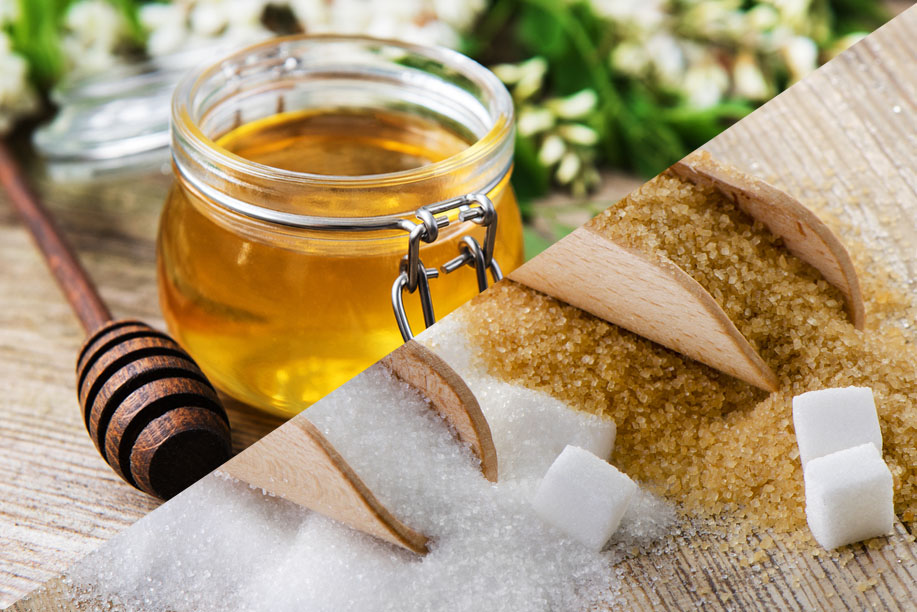While a spoonful of sugar helps the medicine go down, honey might be a healthier choice. Here are a few reasons why:
Honey and sugar both contain glucose and fructose. However, since honey is subjected to only minimal heating during the manufacturing process, it also retains organic acids, protein, nitrogen elements, enzymes and vitamins that are destroyed when sugar cane is processed into sugar. Honey also has antioxidant and antimicrobial properties not found in table sugar.
Honey has more calories per tablespoon than table sugar (64 versus 46), but since honey has more sweetening power than sugar, less of it is required to achieve the same effect. So you can replace 1 tablespoon of sugar (46 calories) with approximately 3/4 tablespoon of honey (only 48 calories) with virtually no change in total calories, and you may find that even less honey provides sufficient sweetness.
When bees make honey, they add a special enzyme that divides the sucrose in nectar into separate glucose and fructose molecules. Our bodies can absorb these two simple sugars directly. Table sugar is sucrose, in which glucose and fructose molecules remain bonded together. Your stomach has to use its own enzymes to separate the bonded molecules before you can use the sugar’s energy. This gives honey a healthier glycemic index than sugar. (The glycemic index measures the negative impact of a given food on the blood-glucose level.)
This molecular difference has another effect, too. Table sugar draws upon the body’s nutrients to be metabolized into the system because of its lack of minerals and vitamins (hence it’s often described as having empty calories). When the body’s nutrients are all used up, metabolizing of undesirable cholesterol and fatty acid is impeded contributing to higher cholesterol and promoting obesity due to higher fatty acid on the organs and tissues.
*Source: Benefits of Honey

